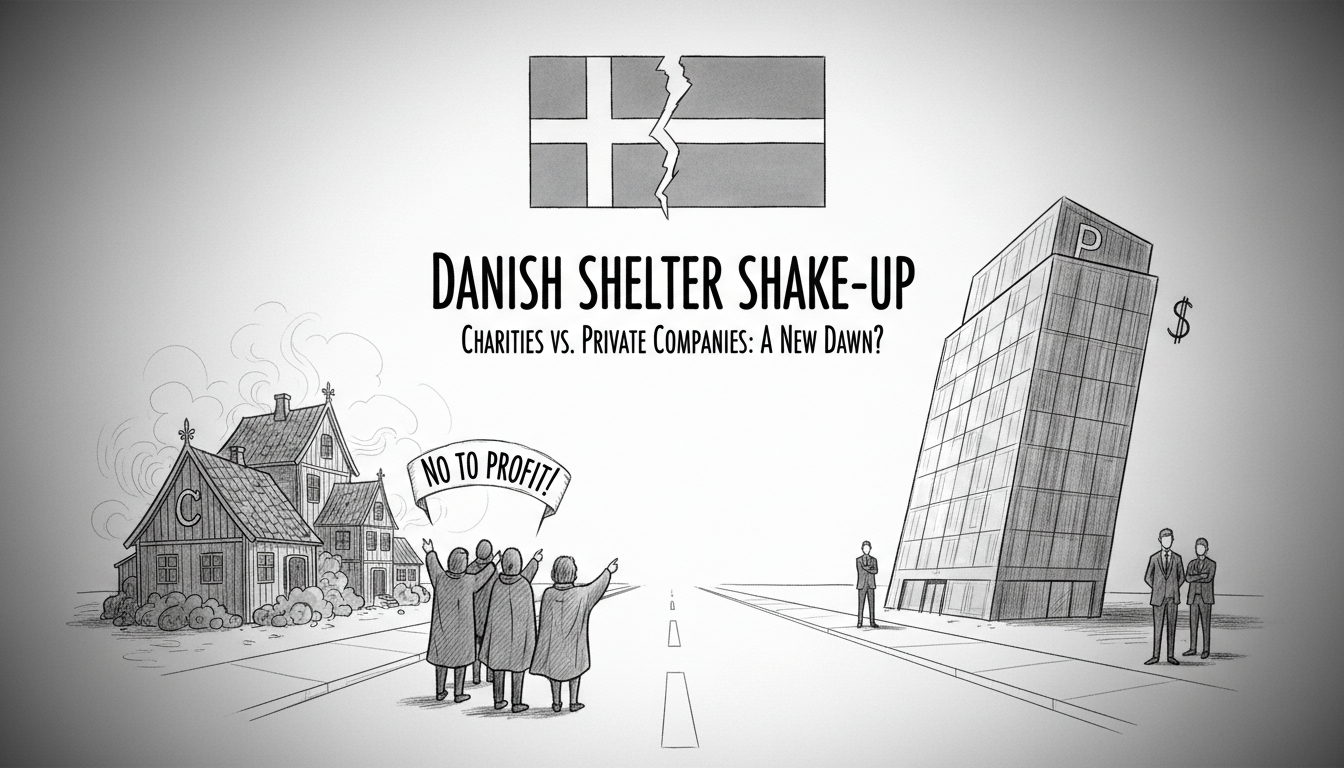The Danish government wants homeless shelters run by charitable organizations to compete with private companies for operation contracts. Organizations including Church Army and Blue Cross currently manage many shelters across Denmark. They express strong opposition to the new proposal. These groups believe the change could damage civil society's ability to help homeless people effectively.
Charity organizations argue that private companies will prioritize profits over people. They fear quality of care will decline as costs get cut. The competitive bidding process could force charities to reduce services to match lower private sector bids. Many shelters provide not just beds but also counseling, healthcare access, and social support.
Denmark has approximately 6,000 homeless people according to recent national counts. Copenhagen alone reports nearly 2,000 individuals without stable housing. The country uses a housing-first approach that prioritizes getting people into permanent homes quickly. Shelter services serve as emergency solutions while people wait for permanent housing.
This proposal represents a significant shift in Denmark's social welfare model. The Nordic country traditionally partners closely with civil society organizations to deliver social services. Private sector involvement in homeless services remains limited compared to other European countries.
International readers should understand that Danish homeless services differ from those in many other nations. The system focuses heavily on prevention and rapid rehousing. Most homeless people stay in shelters for relatively short periods before moving to permanent housing.
The government likely seeks cost savings through increased competition. Denmark faces rising public expenditure pressures despite its strong economy. Welfare services consume a substantial portion of the national budget.
Charity organizations question whether private companies can maintain current service quality at lower costs. They point to their decades of experience working with vulnerable populations. Many staff members have specialized training in addiction counseling and mental health support.
What happens next? The proposal must go through parliamentary debate and committee review. Opposition parties have already voiced concerns about the plan. The final decision could come during the third quarter after summer recess.
This situation reflects broader tensions in Nordic welfare states between cost efficiency and service quality. Similar debates occur in Sweden and Norway about privatization of public services. The outcome could influence homeless policy across the region.
The real test will be whether competition actually improves services for homeless individuals or simply reduces costs at their expense. Both the government and charitable organizations claim they want what's best for vulnerable citizens. They disagree fundamentally about how to achieve that goal.

